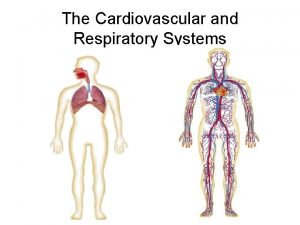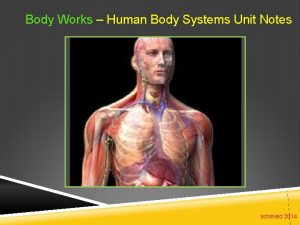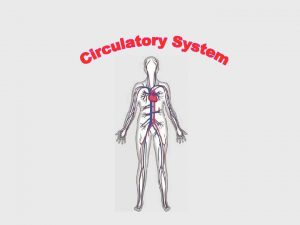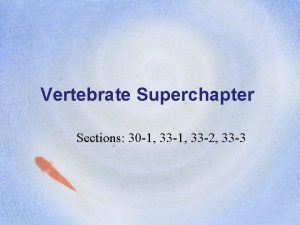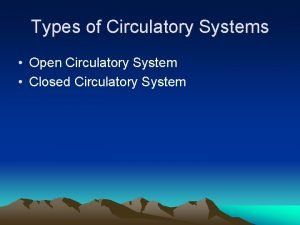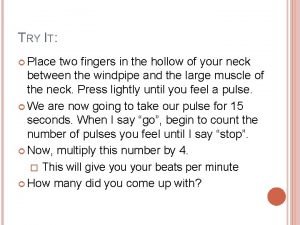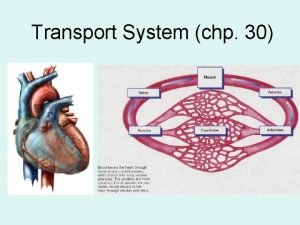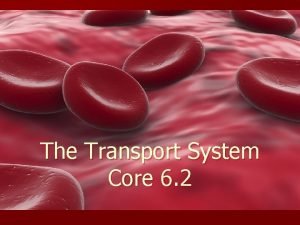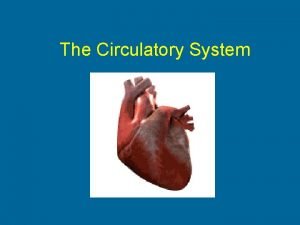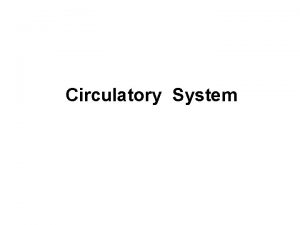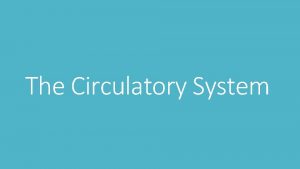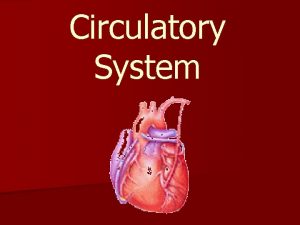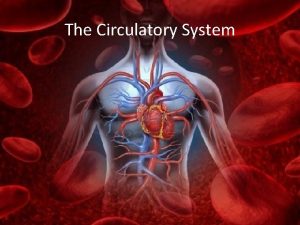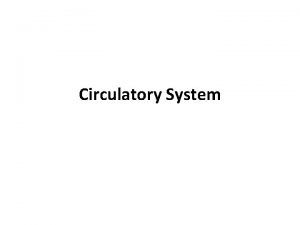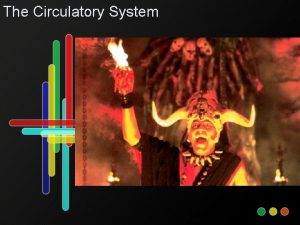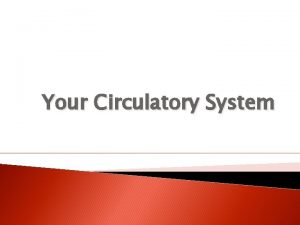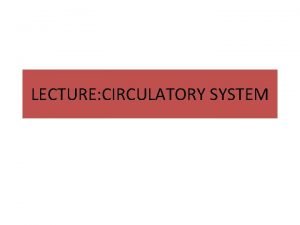WELCOME TO THE CIRCULATORY WATERPARK Circulatory System A











- Slides: 11

WELCOME TO THE CIRCULATORY WATERPARK!!!

Circulatory System � A vast network of organs and vessels that is responsible for the flow of blood, nutrients, hormones, oxygen, and other gases to and from the cells. � Our circulatory system is our maintenance team. They are responsible for keeping the entire waterpark in order, running and flowing properly.

Parts of the Circulatory System; Parts of our Maintenance Team � The Heart- Its main function is to propel blood throughout the body. This our water source (Lake Michigan) � The Water Generator- A machine responsible for pumping water to various parts of the park. � Blood Vessels- A tubular structure that carries blood through the tissues and organs; a vein, artery, or capillary. � Underground Tubes and Pipes- A vast network of connecting tubes and pipes responsible for carrying water and chemicals to the water generator and to other parts of the park.

How The Heart Works/Beats • Your heart is a pump. It's a muscular organ about the size of your fist and located slightly left of center in your chest. • Together, your heart and blood vessels comprise your cardiovascular system, which circulates blood and oxygen around your body. • Your heart also has electrical wiring, which keeps it beating. Electrical impulses begin high in the right atrium and travel through specialized pathways to the ventricles, delivering the signal to pump. • The conduction system keeps your heart beating in a coordinated and normal rhythm, which in turn keeps blood circulating. The continuous exchange of oxygen-rich blood with oxygen-poor blood is what keeps you alive. http: //www. mayoclinic. org/diseasesconditions/heartdisease/multimedia/circulatory-system/vid 20084745

Sides of the Heart: Parts of the Water Generator The heart is divided into two sides, each subdivided into an upper and lower chambers, by a wall known as the heart septum. The upper chambers are known as atriums, and the lower chambers are know as ventricles. Each sides of the heart as a different function: the right side is responsible for the circulation of deoxygenated blood, while the left side is responsible for the circulation of oxygenated blood. Right Side Left side Right Atrium Left Atrium Right Ventricle Left Ventricle Pulmonary Valve Mitral Valve Tricuspid Valve Aortic Valve Our water generator also acts as a water filter. As the contaminated water (deoxygenated blood) comes back into the right side of the generator, it is cleaned and filtrated, then goes out the left side of the generator as clean water (oxygenated blood). It is then generated back into the waterpark.

Blood Vessels: Our Underground Pipes & Tubes Superior Vena Cava- A large vein carrying deoxygenated blood from the head, arms, and upper body into the heart. This tube brings used/dirty water from the front of the waterpark back to the water filter to be cleaned. Inferior Vena Cava- A large vein carrying deoxygenated blood from the lower body. This tube brings used/dirty water from the back/end of the waterpark to the water filter to be cleaned. Pulmonary Artery- An artery that carries deoxygenated blood to the lungs. This is the tube that used/dirty water is carried through and is taken to the water filter to be cleaned. Pulmonary Vein- Veins that carry oxygenated blood from the lungs to the left atrium. This brings the newly cleaned water back to the water source to be generated back into the park.

All About the Blood cells are suspended (which means to be dispersed throughout) within the plasma. The following are suspended: • Red blood cells carry oxygen from the lungs to the rest of the body. • White blood cells help fight infections and help in the immune process. • Platelets help in blood clotting (shutters) • Oxygen is a chemical used to keep the water's p. H balanced. • White b. c. - Chlorine is added to water in order to disinfect it by killing bacteria. • Platelets- Shutters placed in tubing and pipes to prevent an overflow of water.

All About Blood pt. 2 Circulatory System meaning: � Blood pressure is measured in two ways: Your systolic pressure (the first and highest number), is the pressure or force the heart places on the walls of your blood vessels as it is working/pumping with each heartbeat and Diastolic pressure (the second and lowest number) is the lowest pressure the blood places on the walls of your blood vessels when the heart is relaxed between beats. Waterpark meaning: � Water pressure- The flow of water from the tap/water source.

All About Blood pt. 3 � Hypertension aka high blood pressure is a condition where the force of the blood against the artery walls is too high. � High water pressure- causes leaks, pipe damage, and wasted water. � Atherosclerosis is the buildup of fats, cholesterol, and other substances in/on the artery walls. � The buildup of dirt, mildew and algae in the water pipes.

Conclusion � � As you can see, the circulatory system has a lot of similarities to a waterpark. Hopefully our analogies will help you to remember the parts and functions of the circulatory system.

The End � � Thank you for visiting the Circulatory System waterpark! We hope you learned a lot of essential information and we ask that you please return! Completed by: Jameelah Mc. Cregg, and Rhanna Wilson
 Respiratory digestive and circulatory system
Respiratory digestive and circulatory system How respiratory system work with circulatory system
How respiratory system work with circulatory system Circulatory system and respiratory system work together
Circulatory system and respiratory system work together Wise men three clever are we
Wise men three clever are we Circulatory system steps in order
Circulatory system steps in order Non vertebrate chordates
Non vertebrate chordates Lungfish circulatory system
Lungfish circulatory system Do clams have a closed circulatory system
Do clams have a closed circulatory system Circulatory system of a cow
Circulatory system of a cow Circulatory system function
Circulatory system function Closed circulatory system
Closed circulatory system Parts of circulatory system
Parts of circulatory system

